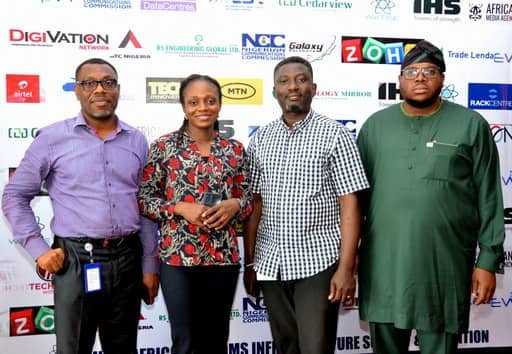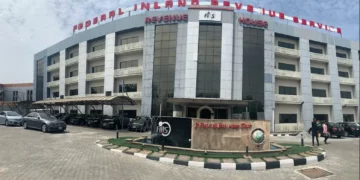Telecom operators have identified challenges ranging from vandalism, insecurity, and high right-of-way charges, as major hurdles that could prevent Nigeria from reaching its broadband penetration targets.
Recall that the minister of Communications, Innovation & Digital Economy, Dr. Bosun Tijani, planned to boost Nigeria’s broadband penetration rate to 70 per cent by the end of 2025; provide coverage for at least 80 per cent of the population, especially the underserved and unserved populations by end of 2027 and deliver data download speed of 25Mbps in urban areas by the end of 2025.
To achieve these targets, the chief executive officer of Coloplus WS Limited, a tower infrastructure company, Mr. Mike Ofili told me, (at the West Africa Telecoms Infrastructure Summit and Exhibition (WATISE) organized by Technology Mirror in Lagos), that telecom operators must begin to negotiate with community members, on how to tackle the issue of vandalism.
Ofili said, “It is very difficult to lay fibre cable across many communities in Nigeria. You cannot cross any community without paying different people. You cannot build towers without going through different communities of people demanding all kinds of things. If you don’t meet their demands, they will either not allow you to deploy or vandalise your equipment after you have left. We must negotiate with communities and come to an agreement that would benefit both parties.”
On security, Ofili averred that the federal government has declared telecom infrastructure as national assets, even as he called on the government to follow through, by ensuring that paramilitary forces are on ground to protect telecom assets.
In the same vein, the group chief operating officer, WTES, Chidi Ajuzie also advocated that operators should set up kiosks at communities to educate rural dwellers on digital services.
“Operators also need incentives to move infrastructure to rural areas and underserved communities. We can get the incentives from either the government or through the banking sector. We are able to roll out infrastructures in places like Lagos, Port Harcourt, Abuja etc, because we know we will get returns faster, as people living in the cities are likely to pay for our services. But once you start going into underserved communities, the challenges keep increasing, hence the need for some kind of incentives.”
Recall that the federal government established the Universal Service Provision Fund (USPF), to facilitate the achievement of national policy goals for universal access and universal service to information and communication technologies (ICTs) in rural, unserved and underserved areas in Nigeria. The Fund is being managed to facilitate the widest possible access to affordable telecommunications services for greater social equity and inclusion for the people of Nigeria.
“The fund has not worked aggressively well, because Nigeria is a very peculiar place. Recall we talked about access to location. We have seen communities telling us that their land is their own oil, and as such, we have to pay different fees to get access to those locations. These additional incentives that I am advocating for, is what will help operators expand services to underserved and unserved communities.
“We are also begging the government to improve power supply. As operators, we believe that once we have steady electricity supply, every other things will fall into place. So we are soliciting for steady power supply, with the hope that the cost of doing business would come down, as most of us spend huge amount of money on CAPEX,” Ajuzie recommended.
We’ve got the edge. Get real-time reports, breaking scoops, and exclusive angles delivered straight to your phone. Don’t settle for stale news. Join LEADERSHIP NEWS on WhatsApp for 24/7 updates →
Join Our WhatsApp Channel










